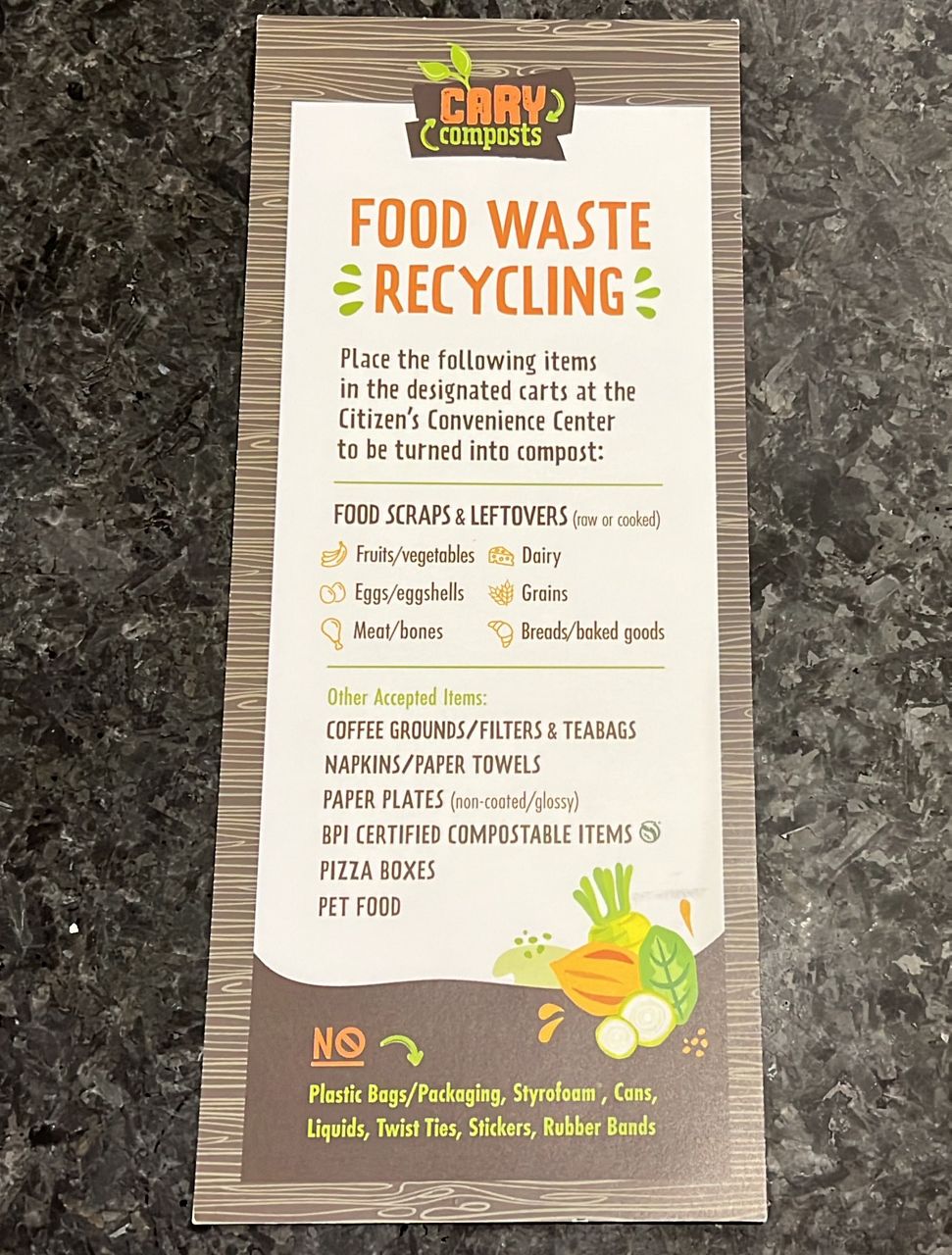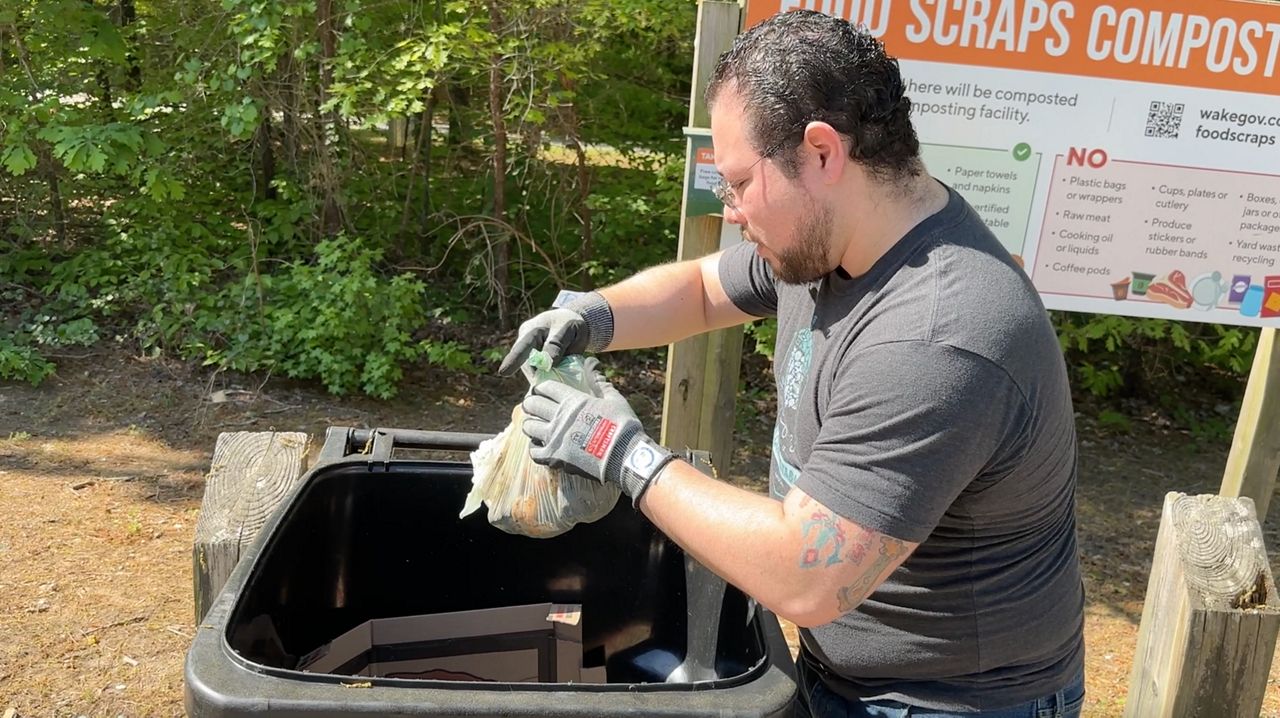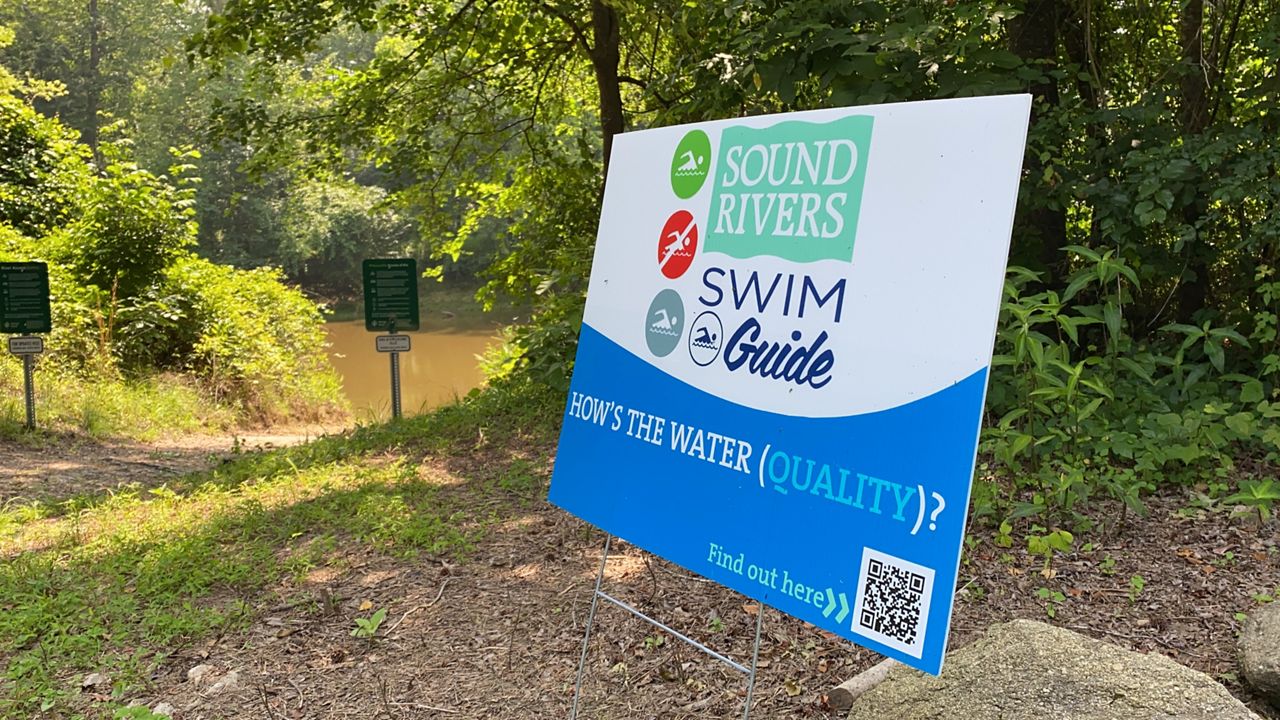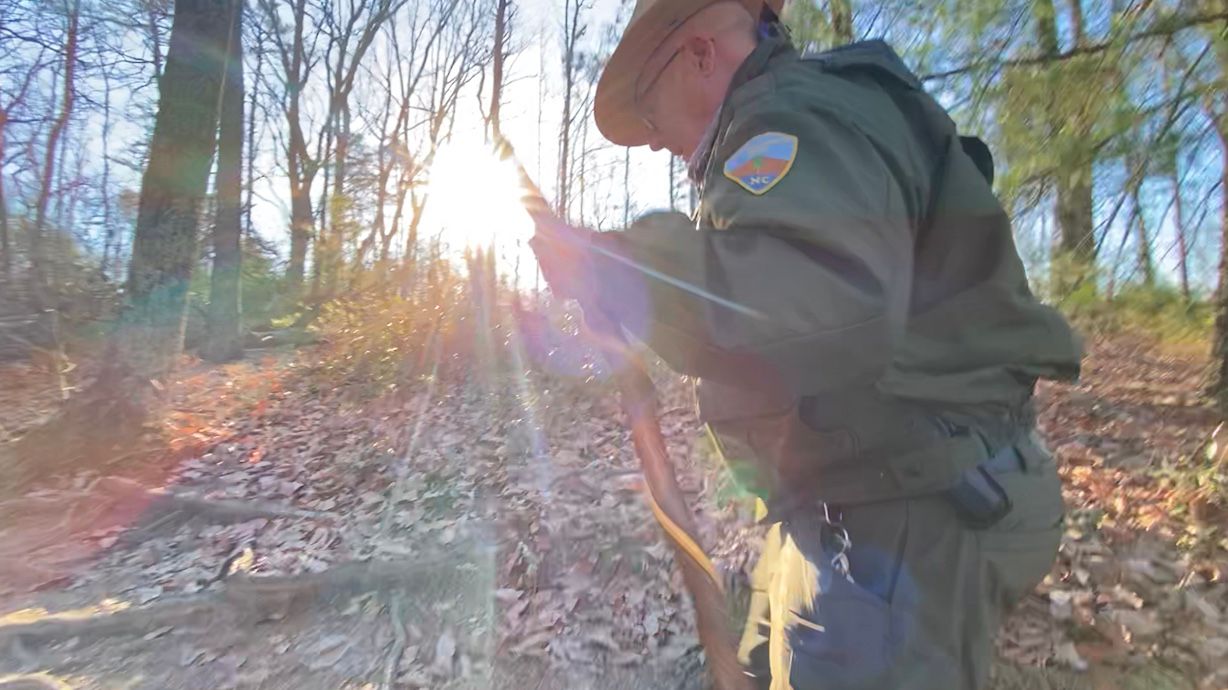CARY, N.C. — A food waste pilot program is underway in Cary, and it’s been very successful so far. The composting program was launched after a study found almost 27% of the town’s garbage is considered food waste.
The town of Cary launched a food waste pilot program about three months ago
A 2019 study found almost 27% of the town’s garbage is food waste
In the program’s first eight weeks, the town says almost four tons of food waste was collected
Durham is currently studying whether a curbside composting program would work in the city
Megan Holler enjoys spending time in the kitchen, but she loves the planet even more.
“I do a little bit of cooking. My husband actually does a lot more so I guide him on the compost piece, and he does a lot of the cooking,” said Holler, the Cary community director of Toward Zero Waste. “I have two children. I look at them every day, and I want to create an environment and help heal our environment so that they have something to pass on to their children.”
To make it easier for others to adopt a green lifestyle, she helped launch the town of Cary’s food waste program.
“Toward Zero Waste is a North Carolina-based nonprofit organization that helps individuals and families and communities move toward zero waste by minimizing waste of all kinds,” Holler said. “Food in the landfill not only creates problems with odor, problems for neighboring communities, but it also releases methane, a very potent greenhouse gas.
So with removing food waste from the landfill, we can utilize an otherwise wasted resource by creating something very valuable. A valuable soil amendment."So with removing food waste from the landfill, we can utilize an otherwise wasted resource by creating something very valuable. A valuable soil amendment.”
The pilot has been extremely successful so far.
“We are just so thrilled with how our community has embraced this pilot service. We have tracked just over 1,100 drop-offs in the first eight weeks and have collected four tons of material that is now diverted from the landfill and being turned into compost,” said Srijana Guilford, the environmental manager for the town of Cary.
Composting may seem like a big change at first, but Holler says it’s now become part of her lifestyle.
“It really was that first step for me that propelled me to do even more and look at ways that I could positively impact our environment,” Holler said. “I think once you get started and just put those usual suspects, those banana peels, apple cores, coffee grounds, it’s amazing to see how that will evolve for you, and you’ll want to find more things that are compostable that you can drop off and not send to the landfill.”

Cary’s food waste pilot program will run through the end of the year, and the town will constantly evaluate the service in order to decide if it becomes permanent. The Citizen's Convenience Center at 313 N. Dixon Ave. is the food waste recycling drop-off site.
Guilford says the compost is processed by a local facility, and that facility sells some if it while some of it is returned back to Good Hope Farm.
Cary isn’t the only place involved in composting. The Environmental Research and Education Foundation (EREF) in Raleigh is working with the city of Durham and Duke researchers to figure out if it’s practical for Durham to launch a curbside composting program.
“Ultimately if we can combine all these factors together looking at the operational side, the behavioral side and what’s happening out there and how can we work to advance the science along that realm then ultimately it creates a future recipe where composting becomes just as natural as recycling is today,” said Bryan Staley, the president and CEO of EREF.
The first phase of that study involves about 100 households then it will be expanded to 500 to 900 households then over 1,000 households. It will be about another 12 months for that study to be complete.
Wake County also offers four drop-off sites for residents who want to keep food waste out of the landfill but don't have the capacity to compost at home.









